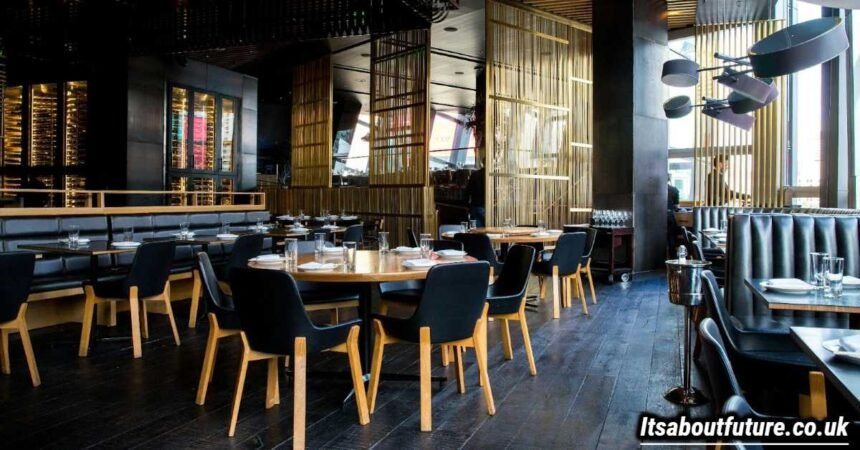When venturing into the restaurant business, one critical investment is in high-quality commercial restaurant equipment. These essential tools of the trade can significantly impact your culinary output, the efficiency of your operations, and, ultimately, the satisfaction of your customers. Sifting through the myriad of available options can be daunting, but understanding what to look for ensures you make informed decisions that will benefit your business for years to come. Below, we outline key factors to consider when equipping your kitchen with the best commercial gear.
Understanding Commercial Restaurant Equipment Needs and Budget
Before embarking on a purchasing spree for kitchen equipment, it is pivotal to conduct a thorough analysis of your restaurant’s needs. This involves taking stock of the type of cuisine you plan to offer, the volume of business you anticipate, and the specific tools that will make your culinary creations possible. A clear understanding of these factors is crucial in making an effective equipment purchasing plan.
Creating a realistic budget is another essential step. Commercial restaurant equipment represents a substantial investment, and costs can quickly escalate if not carefully managed. Setting a budget helps guide your decision-making and prevents overspending on unnecessary features or under-investing in critical items that could impair day-to-day operations.
Exploring various financing options might provide the flexibility needed to equip your kitchen with top-notch appliances without depleting your capital reserves. Whether you opt for leasing, loans, or outright purchase will depend on your long-term financial strategy and the immediate needs of your establishment.
Considering the Efficiency and Cost of Operation for Commercial Equipment
Efficiency in commercial kitchen equipment transcends mere performance—it includes energy consumption and how it affects your bottom line. Contemporary kitchen appliances are increasingly designed with energy efficiency in mind, a factor that can lead to significant cost savings over time. Lower energy and water consumption not only reduce operational costs but also support sustainability initiatives, which can be a strong selling point for environmentally conscious customers.
The cost of operation also incorporates the ease of use and training required for staff. Complex equipment may increase training costs and can impact service speed if staff are not well-versed in operations. Equipment that is intuitive and user-friendly can enhance productivity and consistency in food preparation.
Consider the long-term costs associated with each piece of equipment. While some appliances may have a higher initial cost, their efficiency and durability may result in lower overall expenses through reduced utility bills, maintenance costs, and fewer needs for replacements.
Navigating Warranties and Service Agreements for Restaurant Appliances
Warranties and service agreements are critical factors that can influence the purchase of commercial kitchen equipment. A comprehensive warranty provides peace of mind, covering any defects or malfunctions that may occur within a specified period. It’s important to read the fine print and understand what’s covered and for how long, as well as any conditions or exclusions that apply.
Service agreements can be equally beneficial, offering regular maintenance and immediate repairs, often at a reduced cost. This proactive approach to equipment care can help prevent costly breakdowns and extend the life of your appliances. Businesses should assess the terms of these agreements and how they align with their operational demands.
The availability and cost of spare parts should also be considered. Choosing equipment from established manufacturers with readily accessible components can save time and money on repairs. Delays in obtaining parts can translate into unnecessary downtime and reduced productivity.
Assessing the Space and Layout Compatibility for Commercial Kitchen Gear
The layout and available space of your kitchen dictate the type and size of equipment you can accommodate. Efficient use of space ensures a smooth flow of operations and can positively affect the work environment for your staff. It is critical to measure every area and have a floor plan in mind before making any purchase decisions.
Ergonomic considerations also come into play when selecting equipment. Appropriate spacing between appliances and workstations can improve staff efficiency and reduce the risk of accidents. Moreover, certain health and safety regulations mandate specific distances and clearances around commercial kitchen equipment that must be observed.
In a city like Las Vegas, known for its intense culinary scene, investing in reliable equipment is especially crucial. Las Vegas Restaurant Equipment can be an invaluable partner when outfitting a new establishment or upgrading your current one. They offer a diverse range of commercial kitchen appliances that suit any size and style of the restaurant.
Altogether, securing the right commercial restaurant equipment is a multifaceted process that requires careful consideration of your needs, budget, and operational goals. Overall, a well-equipped kitchen can provide the foundation for delivering exquisite dining experiences, ensuring your restaurant thrives in a competitive market.
